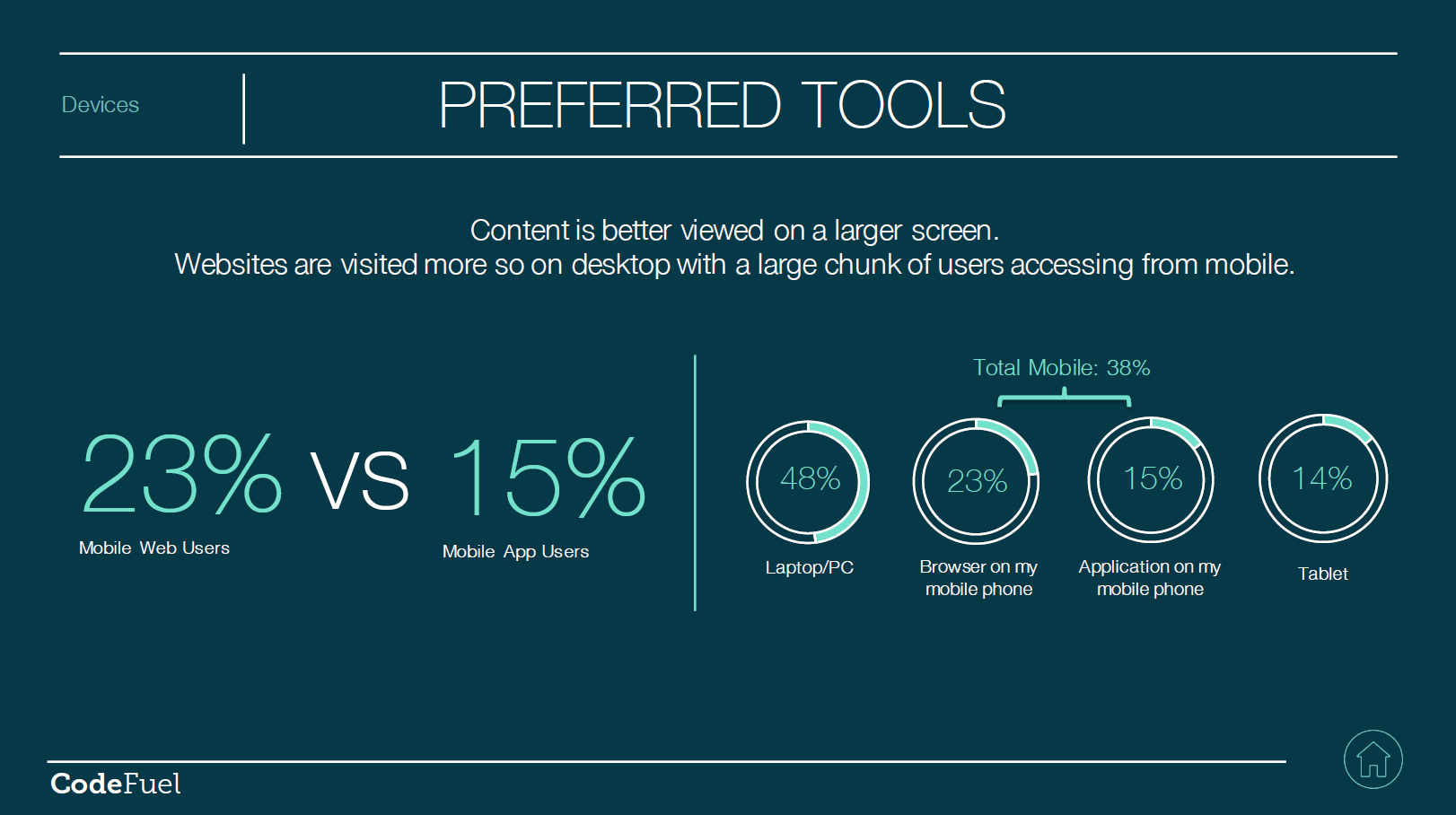
There are two ways that people use their smart phones to access online content: The browsers that come with the phones or dedicated apps.
When people use browsers on their phones, it’s similar to using them on their personal computers, just smaller. They can visit Google to search for information or type in a URL to access any website they want. As long as the site has a responsive design, it will display correctly on the device.
CodeFuel recently completed a large research project to get to the bottom of how people behave online and how they access information. Here’s what we found about mobile users, particularly about mobile web users vs. mobile app users:

Mobile App Users
When smart phones were relatively new, the big thing was to develop a dedicated app for your brand.
App games and tools gained a lot of popularity, but soon after, you began to see apps from companies like the New York Times or Pampers. In those early days, most advice for brands was to focus on developing an app—either a specific app for the brand or a related app such as a game or helpful tool.
But our research found that few people actually use mobile apps to access information. In fact, only 15 percent of online users also use mobile apps.
That’s not to say that mobile apps are useless. You just need to think more carefully about how they can benefit the consumer if you intend to put the massive time and expense into creating one.
The best mobile apps are those that provide some tool for the user. For example, apps that track exercise or food consumption are great for those looking to lead healthier lifestyles. You can also create apps that help parents track their kids’ chores or give them ideas for activities to do on a rainy day.
The apps would not open your website directly, but they can link to your site and feature relevant links to your content prominently. You just need to think strategically about how to merge the usefulness of the app with the information you want users to have.
Mobile Web Users
More people are like to use a mobile browser to access information than they are to use a mobile app.
Our research found that 23 percent of people use the mobile web browser to go online. The web browser provides them more freedom to search or to browse websites than do apps, which are dedicated to a specific site or purpose. The exception, of course, is an app like Google or Bing that is dedicated to search and connects users to other sites.
Another important finding from our research is that only 38 percent of users total are relying on their smart phones to look up information. Add 14 percent for tablet users, and you have a total of 52 percent. While that is a majority, it is just barely so.
A whopping 48 percent of people prefer to look at websites on their personal computers because the content just looks better and is easier to read on a big screen. Even when websites are designed to appear appropriately on mobile screens, the text is smaller and the ability to navigate is limited.
You have much more freedom browsing on a desktop, and you don’t have to strain your sight so much to see all the details (or zoom in to only a small part of the screen, requiring you to move the screen every few words).
Your Marketing Plan
So what does this all mean for marketing your brand?
Mobile users are growing in number, and more people are going to be using these devices to access information online. But desktop users are never going to go away.
You should, of course, have a website that is properly designed for all mobile devices, and you should optimize your site for mobile search.
However, you should focus your efforts so that the content users would most likely need when they are on the go is best optimized for mobile.
Think about what people will need when they are out and using their phones to search: Directions, an immediate answer to a question, instructions, product reviews, and so on. Then determine what content on your site offers that and develop a plan to optimize it for mobile users.
You don’t need research and figures to always tell you what to do. All you need to do is think like a user. What do you use your mobile device to find? What websites and ads appeal the most to you in search?